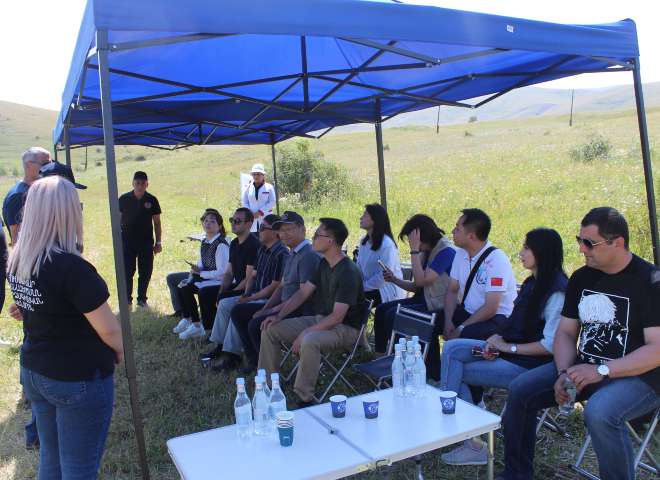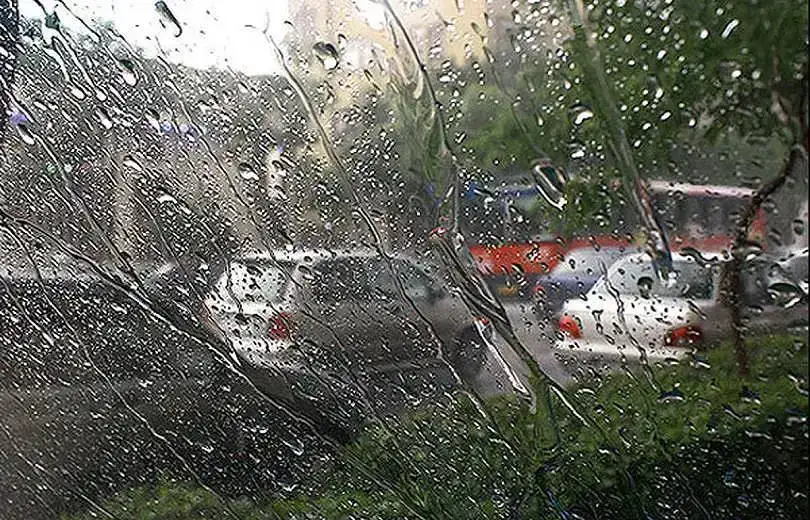From July 28 to 29, the delegations of the People's Republic of China and the United Nations World Food Program, accompanied by the management staff of the "Humanitarian Demining and Expert Center," visited the Jermuk settlement of the Jermuk community of Vayots Dzor, where "HAPC" deminers have been conducting combat operations since May, cleaning of areas contaminated by unexploded ordnance.
Representatives of the National University of Defense Technologies of the Ministry of Defense of the People's Republic of China, headed by Professor Ma Jianguan, Director of the Center for International Studies, Senior Colonel An Qian, Military Attaché of the Embassy of the People's Republic of China, Nanna Skau, head of the United Nations Program, were present at the familiarization visit.
The delegations of the People's Republic of China and the UN WFP were present at the fieldwork, got acquainted with the training base, and got acquainted with the works carried out in the field of anti-mine through video presentations. The Armenian project "Nanosystem," implemented within the cooperation framework between the "HAPC" and the UN World Food Program, was presented.
Vaghinak Sargsyan, director of the SNOC "HAPC," welcomed the guests and highly appreciated the establishment of cooperation between the Republic of Armenia and the People's Republic of China in anti-mine activities.
"We cooperate in the anti-mine field with Geneva, Iran, Iraq, Lebanon, and other countries, and today we attach great importance to the first steps of establishing cooperation with China. Armenian-Chinese relations are close; the Chinese people have always treated Armenia warmly. We are confident that RA and PRC will create a basis for collaboration in humanitarian demining.
Anti-mine activity is not only about clearing fields, informing about the danger of explosive munitions, and supporting the victims; it is also an activity aimed at contributing to the further purposeful exploitation of the cleared areas and ensuring long-term socio-economic development. That is why, together with the World Food Program of the United Nations, we have started implementing an unprecedented Armenian program that has not yet been implemented in the world, the "Nanosystem," which is based on the idea of a "Green Label." After determining the priority of cleaning and cleaning the areas, we will be consistent with what socio-economic programs will be implemented after the cleaning and how the areas labeled "Green Zone" will be exploited. The "green label" will be given first to the Jermuk community, where the cleaning works are nearing completion," said Vaghinak Sargsyan.
Senior Colonel An Qian, military attaché of the Embassy of the People's Republic of China, said: "The cooperation between us and the "Humanitarian Eye Examination and Expert Center" started at the beginning of last year. We will try to find more edges of cooperation in this area because cooperation in this area can guarantee the peace and security of the area. Demining is one of the most important missions to maintain international peace and universal security. It can accelerate and give new life to the social and economic life of the community. That is why we can learn a lot from the work and experience of the "Humanitarian Demining and Expert Center."
During the familiarization visit, the head of the UN World Food Program, Nanna Skau, presented the idea of the "Nanasystem" Armenian system, the cooperation with the "HAPC" SNOC, through a video presentation.
"As a result of shelling and bombing last year, the area is inaccessible to the community. Pollution affects the socio-economic development of the settlement. We, working with "HAPC," defined these areas as a priority, in which the community also played a role. And, thus, "HAPC" is now cleaning these areas. When they are put into operation, we already have plans with "HAPC" and the community, what will be our next step. When these areas become available to the community again, the residents will be able to use it, collect the fruits and sell them. And the cable car, which is a tourist attraction, will be put into operation again. This is why the "HAPC" and the WFP work together against landmines," said Nanna Skau, head of the UN World Food Program.




















